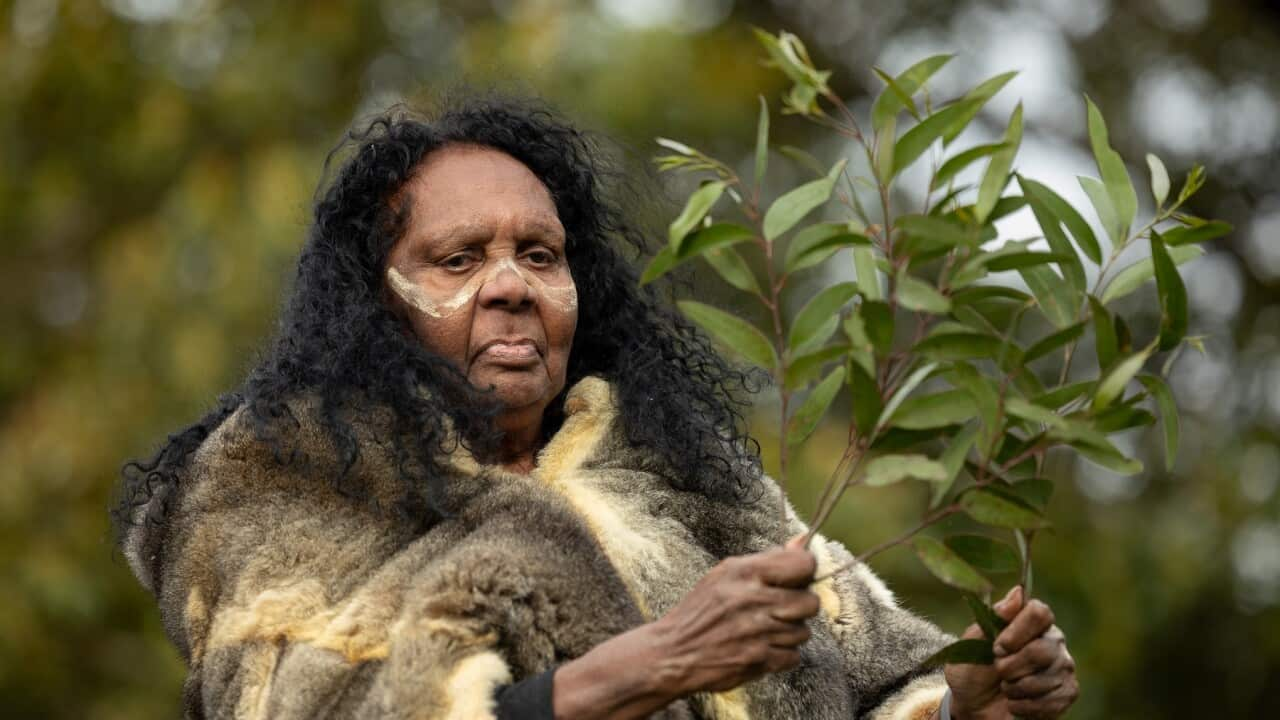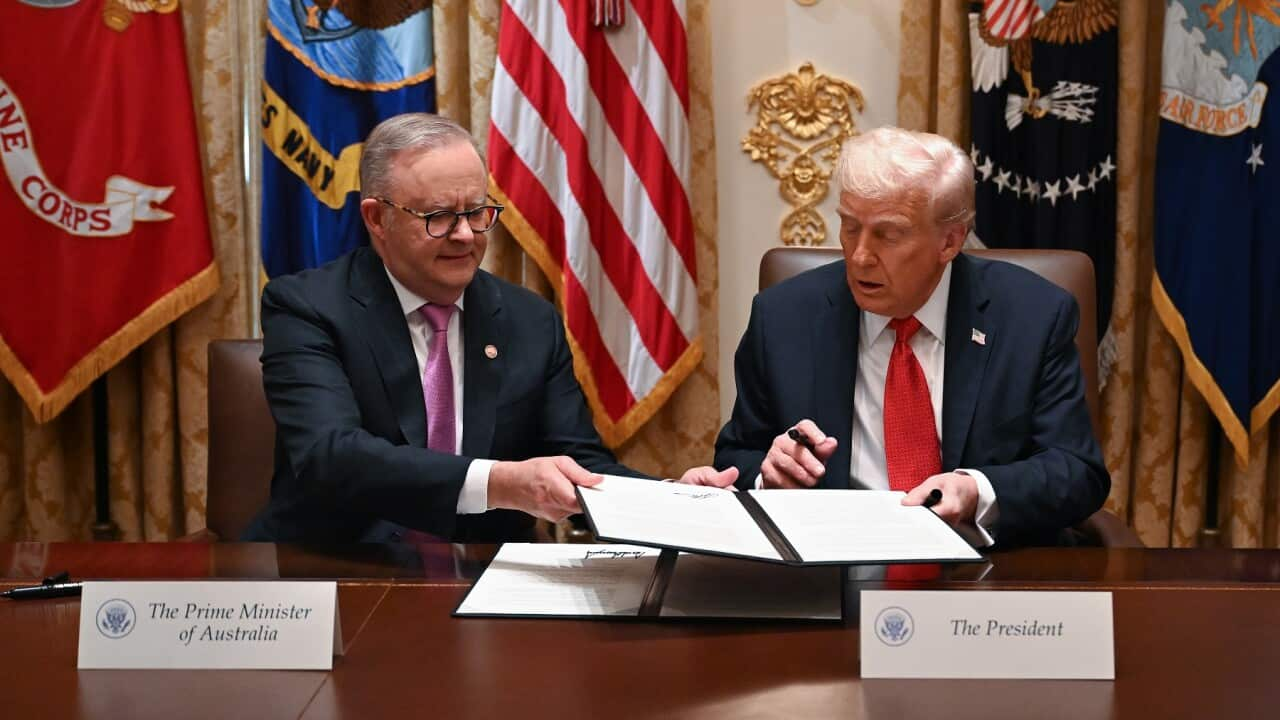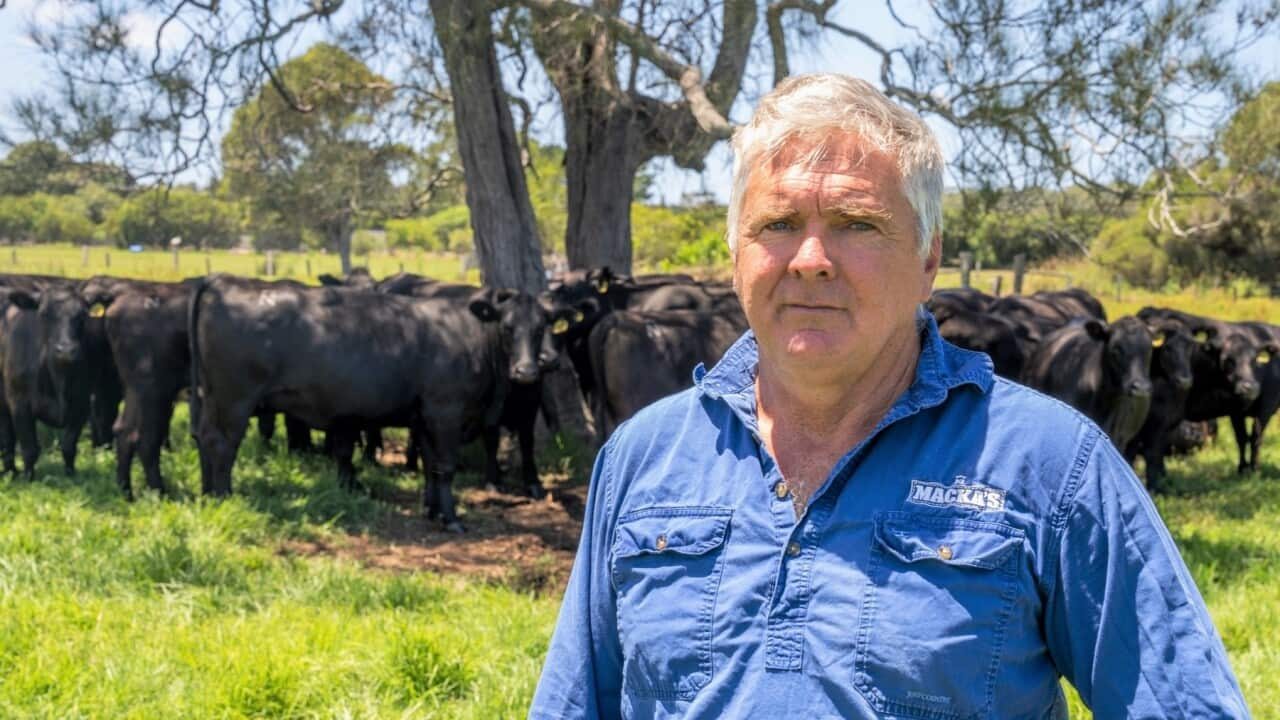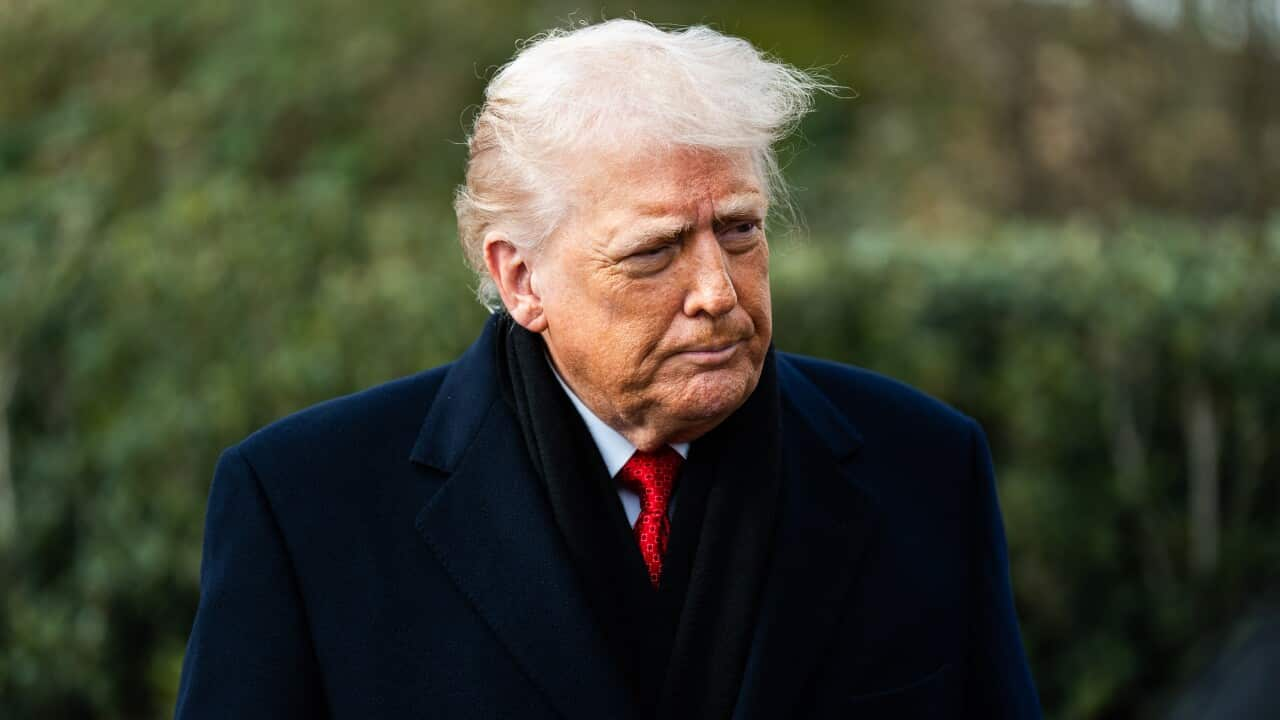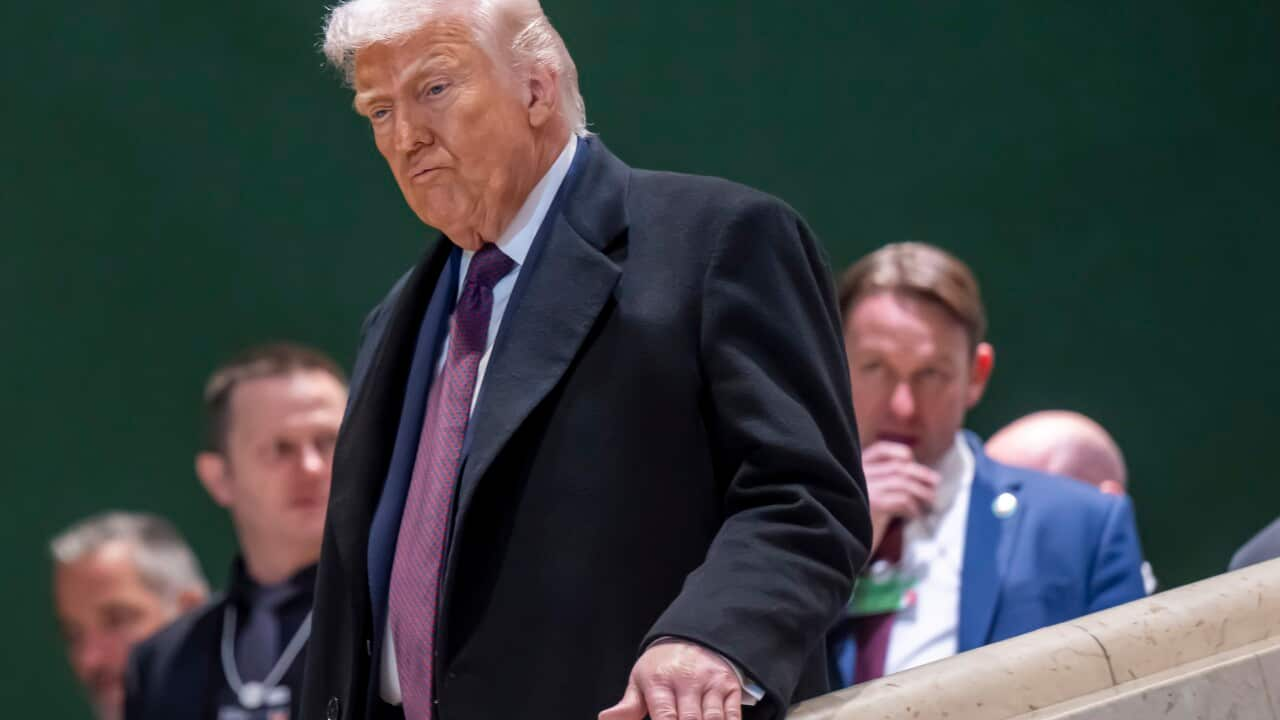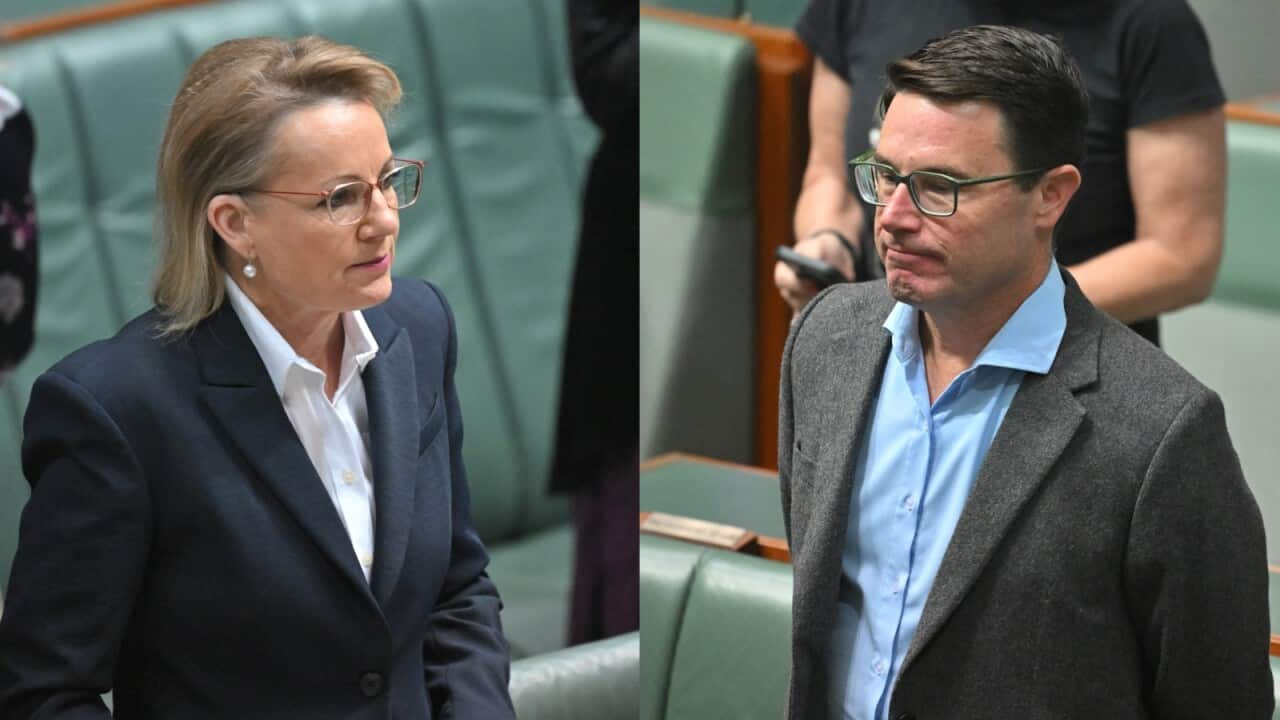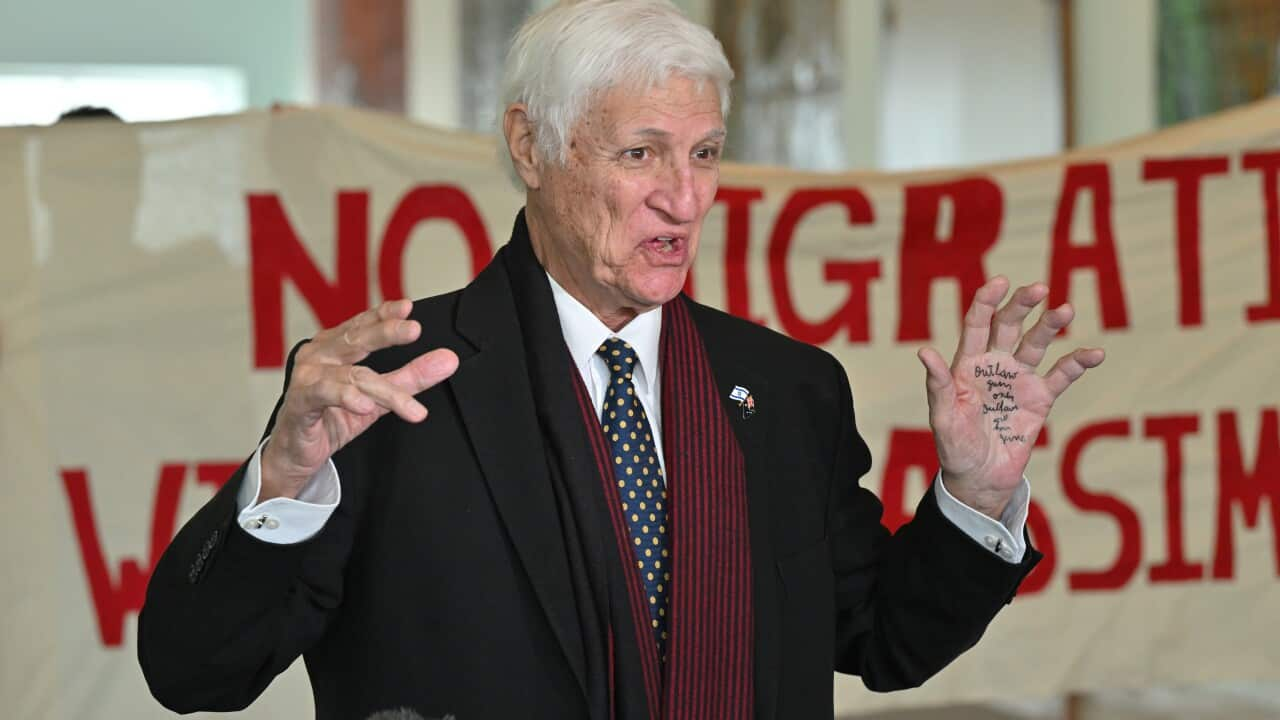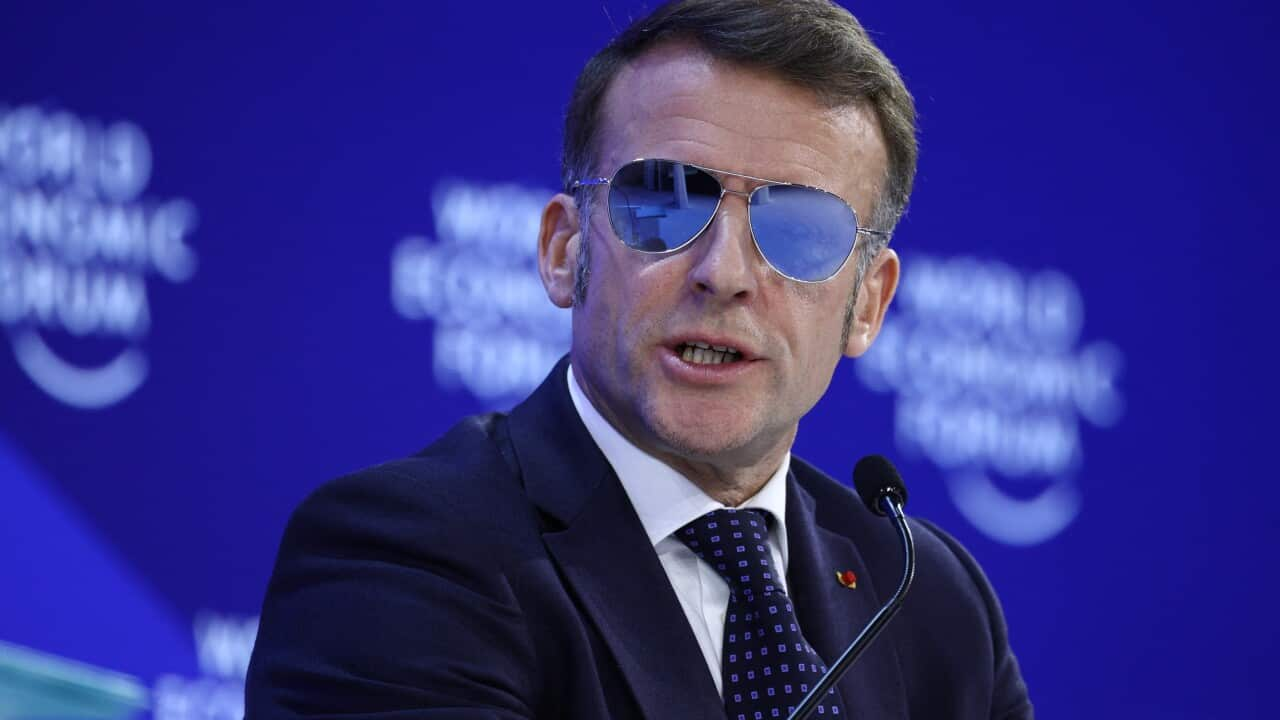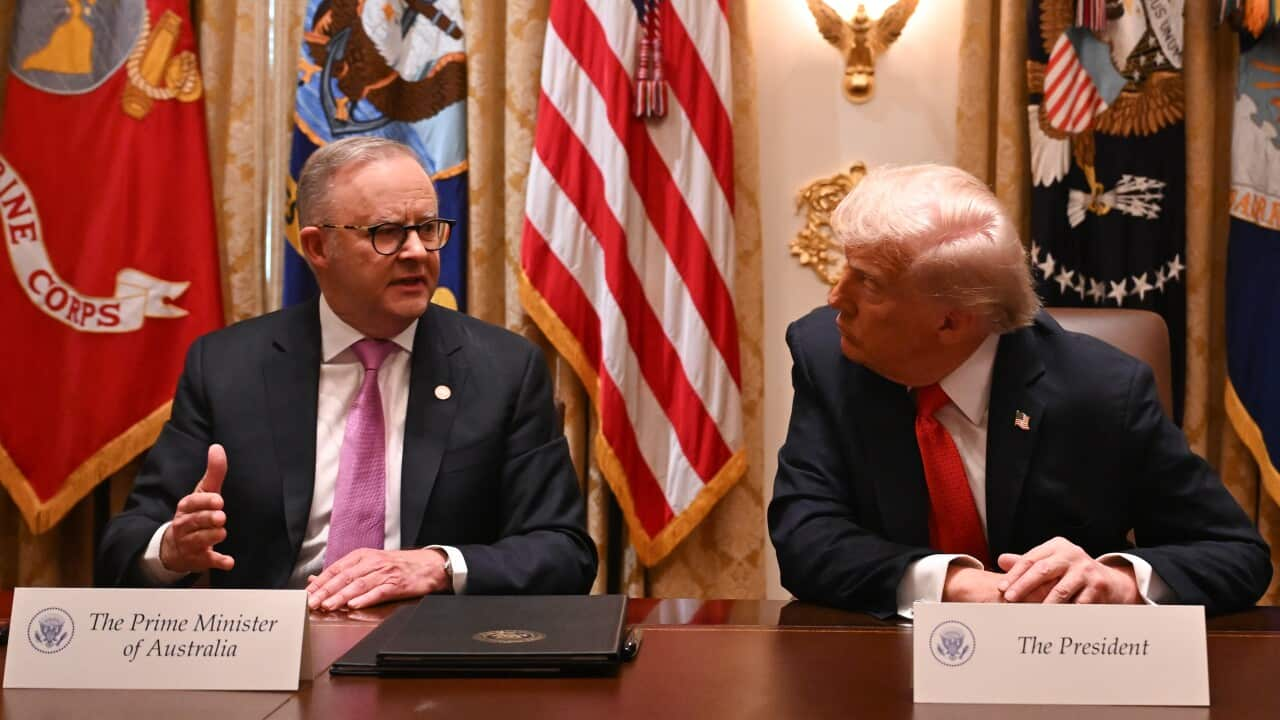Listen to Australian and world news, and follow trending topics with SBS News Podcasts.
TRANSCRIPT
On the traditional land of the Dharug people at Parramatta, in western Sydney... one of many ceremonies held across the country to mark the 28th National Sorry Day, and remember the history of the Stolen Generations.
"One of my grandmothers was taken from up north and we had no idea where she was from for 100 years, for four generations. So all of the newly identified brothers and sisters, I feel you. For all the families that are reconnecting to their own motherlands, I want you to know that I see you."
That's the voice of Jie Pittman, speaking at the event in Parramatta, an area where the first school for Aboriginal children was built in 1814.
Dharug knowledge holder Julie Jones Webb says the trauma of the Stolen Generations is embedded in this institution's history.
"What they didn’t tell us is when we put our children in the Parra Native Institution that on those documents that we couldn’t read is that our ancestors marked an X on was a notation that we would never, ever, be able to take our children back home again."
Sorry Day marks 28 years since the landmark Bringing Them Home report was tabled in federal parliament.
The report detailed how thousands of First Nations children were forcibly removed from their families under what was government policy.
Mr Pittman says Sorry Day is a chance for all Australians to confront this history and the harm caused.
"Acknowledgement is our economy and the knowledge of what we know. To have so many more Australians in acknowledging helps with the next steps of healing."
There are around 17,000 stolen generations survivors.
Attendants at the Parramatta event were encouraged to join dance and weaving workshops, to celebrate the strength and survival of Aboriginal and Torres Strait Island people and culture, and keep culture alive for future generations.
In Brisbane, song and dance were part of Sorry Day events, too.
Sharron Mirii Bell, founder of Aboriginal organisation Indigenous Insights attended the event.
She says the removal of children has caused immeasurable damage.
"I have no idea how anyone in their right mind would ever think that it would be a possibility, or an idea, to take babies away from their families, their homelands, from their language, their food source, their connection to country."
The Bringing them Home report handed down 54 recommendations to support reconciliation for our Stolen Generations, and 28 years on - only 6 per cent of them have been implemented.
First Nations children still make up around 45 per cent of those in out-of-home care, despite making up 7 per cent of the children's population.
As Australia marks National Sorry Day it also marks the beginning of reconciliation week, which runs until the 4th of June.
Former minister for Indigenous Australians Ken Wyatt says it's a chance for politicians to recognise that concrete action is needed to address ongoing disadvantage.
"It doesn't matter which government is in, I've seen over my lifetime, governments talk about the issues of need, the gaps, the levels of disparity, the incarceration rates, and when they're in opposition they're very strong on some of that language. But what I;m also seeing in that period, is when in government, Aboriginal affairs is not the priority."
Aboriginal elder Tom Calma says reconciliation is facing a battle for support from politicians and public alike, especially after last year's failed Voice to parliament referendum.
But he says the movement for reconciliation is growing stronger, and needs continued support.
"Some people say reconciliation is dead, but that's far from being true. There was over 6.2 million people who voted yes. I think reconciliation is alive and well, it's growing, we've got some really active reconciliation committees around the nation."
